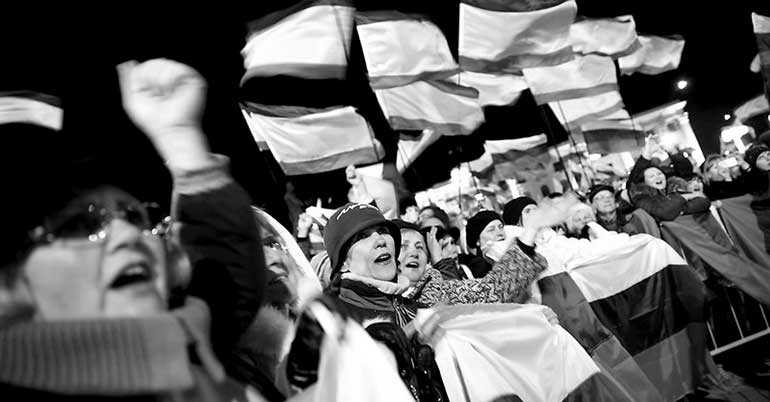Thursday Feb 19, 2026
Thursday Feb 19, 2026
Saturday, 16 March 2019 00:00 - - {{hitsCtrl.values.hits}}

Today, Russian Crimea looks to the future with confidence
By Yury Materiy
The 18th of March will see the celebration of the fifth anniversary of the reunification of the Republic of Crimea and City of Sevastopol with Russia.
Crimea’s people waited many years for the chance to exercise their lawful right to self-determination – a right enshrined in the Charter of the United Nations and other international instruments, including the Commission’s on Security and Cooperation in Europe (CSCE) Helsinki Final Act.
Crimeans began resisting forced Ukrainisation and Russophobia back in 1991, when 93% of the region’s people voted in a referendum to restore Crimea’s autonomy within the Soviet Union – in other words, to make it an independent, separate from Ukraine entity within the then USSR. But it so happened that the resistance lingered for more than two decades.
On 16 March 2014 in the course of free democratic expression of will at the referendum in Crimea the vast majority (96.8%) of the region’s people voted in favour of reunification with Russia. Anyone who speaks of the “annexation” of Crimea demonstrates either an extreme degree of disrespect towards the population of the peninsula that is the holder of sovereignty on its territory or ignorance of the most elementary principles of international law.
The event that spurred Crimea’s reunification with Russia was the violent anti-constitutional coup d’état that took place in Kiev five years ago and was backed by the West. It blatantly violated not only Ukraine’s Constitution, but brought to power a government of extreme right radicals whose calls and actions created a direct threat to human rights and physical safety of Russians and Russian-speakers in Crimea.
The 20 February 2014 attack near Korsun-Shevchenkivskiy by frenzied radical nationalists against a column of buses carrying Crimean residents home from Kiev marked a major turning point. About 30 people went missing, seven lost their lives. For Crimeans, this was the milestone that made clear what road they would have to take.
The attitude taken by the authorities in Kiev to the people of Crimea was expressed by one of the Ukraine’s nationalist leaders Dmytro Yarosh: “Crimea will be Ukrainian, or it will be emptied of its people.” The Ukrainian Government did not stop at words. They organised a water, food, transport and energy blockades. Ukrainian nationalists continue to call for punishing the people of Crimea for the democratic choice they made.
The will of the Crimea’s people expressed in 2014 made it possible to avoid the horrors of civil war that the Ukrainian authorities have unleashed in the Donbass for already five years.
People who do not want to become victims of neo-Nazis are being punished for their free political choice. Western countries loudly demonstrate adherence to the principles of democracy but in practice do not skimp on punitive measures against the Crimeans, whose desire to determine their own destiny was expressed within the framework of democratic traditions. Western countries deny visas to residents of Crimea and there are restrictions for international business on the peninsula.
Now we can say for sure that Crimea’s integration into Russia’s common political, legal, social and economic space has been completed. The situation in the peninsula is calm and its residents enjoy unhindered exercise of all rights granted by Russia’s international obligations and guaranteed by the Russian Constitution.
The socio-economic situation is stable, despite the difficult legacy of the past. Real budget revenue is on the rise, housing construction is picking up pace, industry and agriculture are growing, transport infrastructure is being developed and the tourism sector is getting stronger. The free economic zone is developing rapidly. Investors from China, India, and a number of member-states of the Organization for Security and Cooperation in Europe are showing great interest in doing business in the region. Crimea has foreign economic ties with some 60 countries.
A positive atmosphere continues to prevail in inter-ethnic and inter-religion relations. The federal and regional authorities promote cultural, linguistic, religious and other interests of national minorities, including Crimean Tatars and Ukrainians, in accordance with the Russian Constitution.
There is still a lot to do to develop the peninsula, but the work goes on. Today, Russian Crimea looks to the future with confidence.
(The writer is the Ambassador of Russia.)